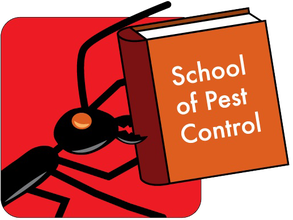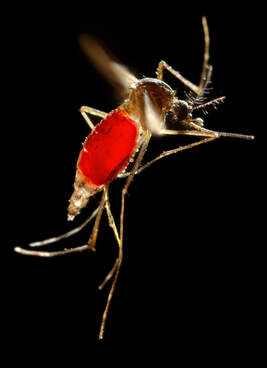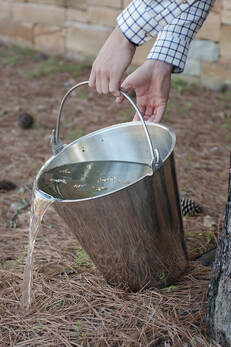|
Mosquitoes are an important public health and nuisance pest that require season-long management. Maybe you have seen news reports recently about mosquitoes and West Nile virus and thought, "Is there anything I can do to help?” Today’s blog shares a little information about mosquito biology and what you can do to manage mosquitoes in your own yard and community this summer. Mosquito bites are annoying and itchy, but mosquitoes are more than a nuisance—they can transmit microscopic organisms that cause disease, too. In most counties in the United States, there are over 30 types, or species, of mosquitoes present. Importantly, not all types of mosquitoes are capable of spreading disease. In fact, some types of mosquitoes do not feed on humans at all!
The best way to kill mosquitoes and reduce their numbers uses an integrated approach. Integrated mosquito management collects data to make informed treatment decisions and uses all control tools available and reasonable. These treatment decisions can include a lot of different tactics such as recruiting members from the community (you!) to help! ACTIONS YOU CAN TAKE Because mosquitoes spend a lot of their life swimming, the “tip and toss” method is a great way to reduce mosquito numbers. Once a week, tip and toss the accumulated water out of any items around your home. That is all it takes to get rid of these potential breeding sites! Remember, even a bottle cap full of water is enough to hold mosquito larvae and produce adult mosquitoes. If you want to go a little farther, consider these water-removing actions as well:
Most mosquitoes do not fly incredibly far. However, they can move readily from backyard to backyard. This means that talking to your neighbors about mosquito prevention is important as well. A community-wide mosquito management approach will provide the most relief from nuisance bites and result in an overall decrease in mosquito abundance. If you cannot control the mosquito community around you, you can prevent mosquitoes from moving in. Mosquitoes do not need much room- even small holes the size of a pencil can be an “open door” for a mosquito. Repair window and door screens and seal any gaps in door frames or other areas that lead from the exterior to inside. Closing these holes will keep mosquitoes out. FINAL THOUGHTS Mosquitoes are responsible for more human suffering and death than any other animal. Therefore, any steps that prevent mosquitoes from developing and protect against bites promotes good public health. Also, illnesses transmitted by mosquitoes do not only affect humans. They also kill birds, reptiles, dogs, horses and other animals, too. Taking these steps to help reduce mosquitoes also protects your furry friends. With a concentrated effort from community members, everyone can help protect against mosquitoes this summer. If you are interested in learning more about integrated mosquito management, The School of Pest Control* offers a course on Protecting People and the Environment Using Integrated Mosquito Management. This course discusses mosquito trapping, pesticidal applications, and strategies for control that are beyond the scope of this post. When it comes to mosquito control, an ounce of prevention is certainly worth a pound of cure.  *The School of Pest Control is operated by the League of Extraordinary Entomologists, which Jennifer R. Gordon is a co-founder.
0 Comments
|
Bug Lessons BlogWelcome science communicators and bug nerds!
Interested in being a guest blogger?
Archives
November 2023
Categories
All
|

